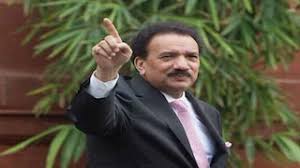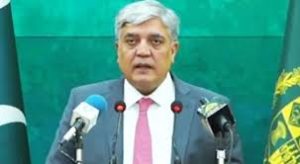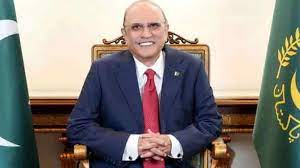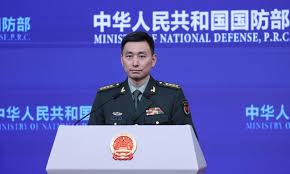Rehman Malik pens letter to FATF chief, urges to take serious notice of Indian nuclear proliferation

Islamabad: Former Interior Minister and Chairman Institute of Research and Reforms (IRR) Senator A. Rehman Malik has urged the Financial Action Task Force (FATF) President Dr. Marcus Pleyer to take serious notice of continuous nuclear proliferation by India and probe into the incidents under FATF rules of Financing Proliferation.
While addressing a press conference here on Thursday and making public his letter, he said that he wanted to bring in the notice of FATF, another highly serious and heinous crime of financing proliferation as some 7.1 kg of highly enriched uranium was recovered from two citizens of India on 6 May 2021 in Mumbai. He said that according to Institute of Research and Reforms (IRR), it was not the first time that such a highly radioactive substance has been seized by police in recent years but there are many more cases of nuclear proliferation which are not reported by India.
He writes that the theft of uranium and the plan to sell it is a source of concern about nuclear safety and security, not only for India but also for the whole world. It is not yet known as to who was the intended customer(s) was, yet there are possibilities that a black market of nuclear material is thriving in India, which might be connected to international players, non-state actors, or terrorists.
Rehman Malik stressed that the seized uranium could have been trafficked to non-state actors or terrorists, which needs to be investigated. “It must be mentioned here that it cannot happen without the active connivance of state operators hence India has proved itself as an irresponsible state and kept lose control of nuclear materials,” the letter reads.
In his letter, Senator Rehman Malik has referred the 2010 FATF’s Guidance on Counter Proliferation Financing that defines “Proliferation Financing” that “the act of providing funds or financial services which are used, in whole or in part, for the manufacture, acquisition, possession, development, export, trans-shipment, brokering, transport, transfer, stockpiling or use of nuclear, chemical or biological weapons and their means of delivery and related materials (including both technologies and dual use goods used for non-legitimate purposes), in contravention of national laws or, where applicable, international obligations”.
On April 28, 2004 the UN Security Council adopted UNSCR 1540, which was established to prevent non-state actors from acquiring nuclear, biological, and chemical weapons, their means of delivery, and related materials. The resolution filled a gap in international law by addressing the risk that terrorists might obtain, proliferate, or use WMDs, he added.
He concluded his letter with the plea that keeping in view the above cited case and facts; it is requested to kindly consider action against India for this gross violation of Nuclear Proliferation.
Answering to a question he said that he was concerned about the situation in Afghanistan after the withdrawal of US troops without a comprehensive withdrawal strategy. He said that he foresees the civil war in Afghanistan if the world powers do not work together for peace and stability in Afghanistan. He said that Pakistan has played the most important and key role in the Afghanistan peace process as our COAS General Bajwa is determined for peace in Afghanistan.
To another question, he said that as Pakistanis we must respect our country, our institutions and our army and we must stand firmly with our armed forces. He said that enemy countries are using millions of dollars for propaganda against Pakistan Army and we must not listen to the enemy’s propaganda who want to destabilise Pakistan by such tactics.
On the occasion he also condemned the Indian forces brutalities in Indian Illegally Occupied Kashmir (IIOK) and urged the international community to break silence on the plight of Kashmiris.





